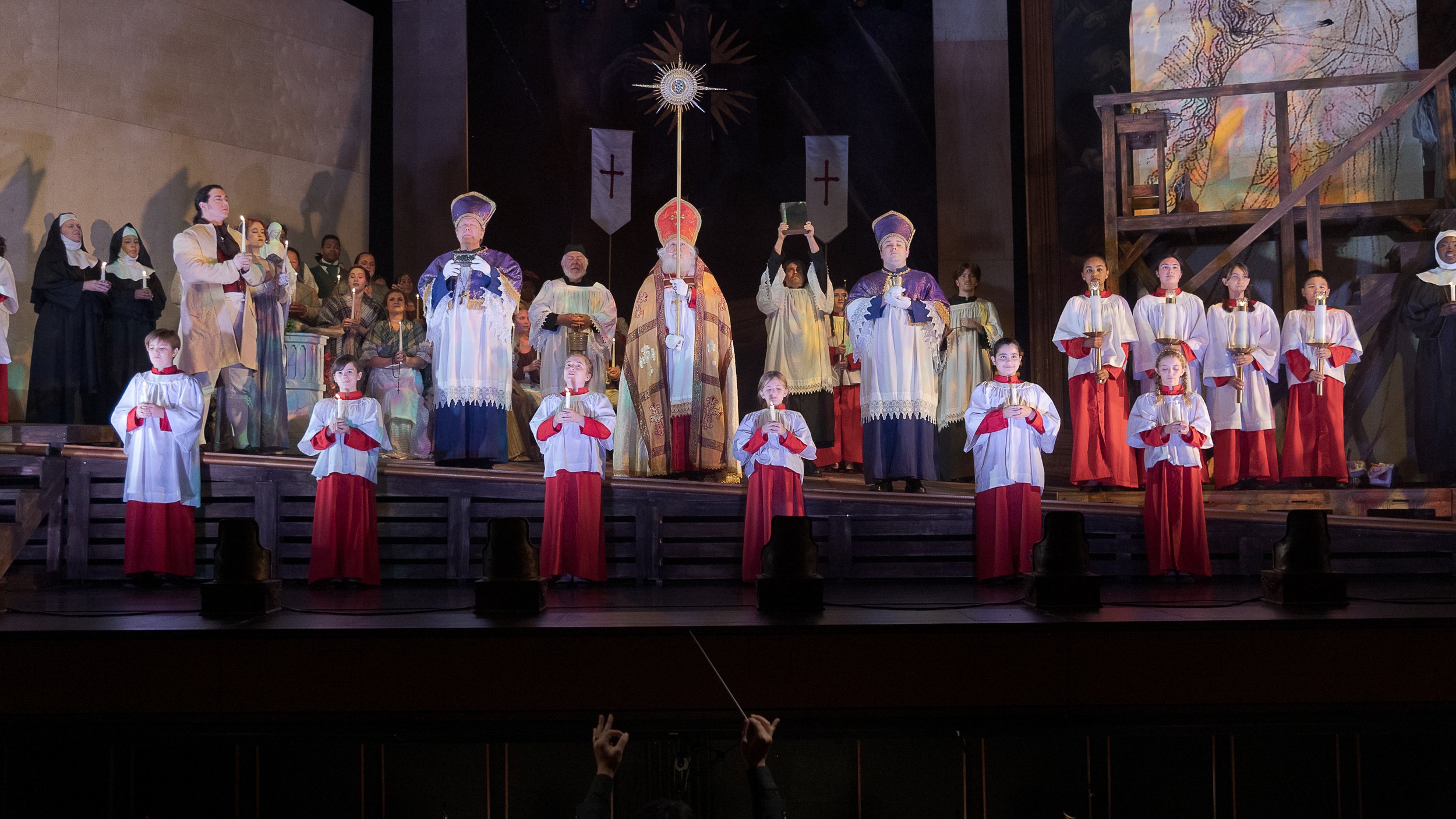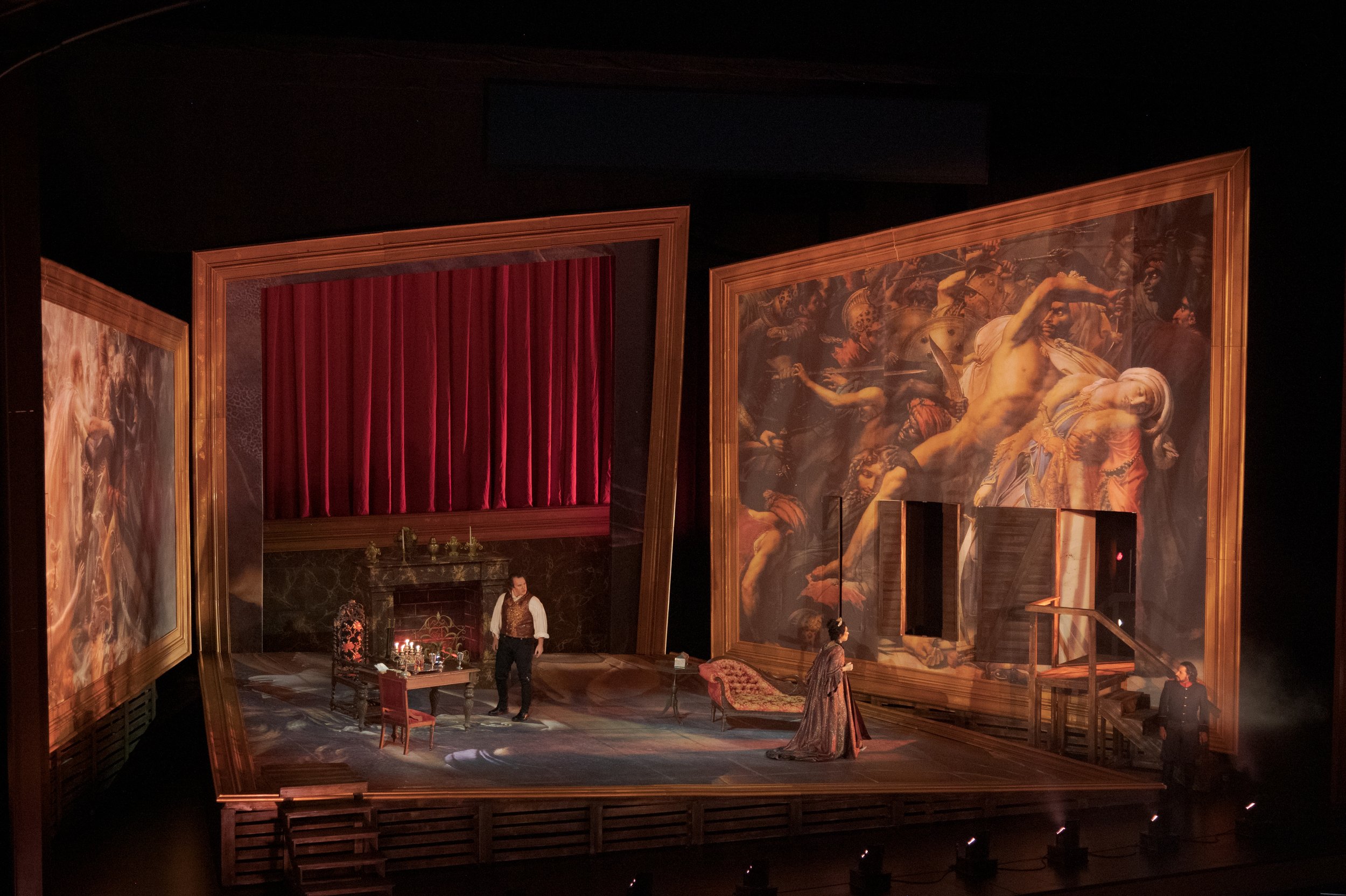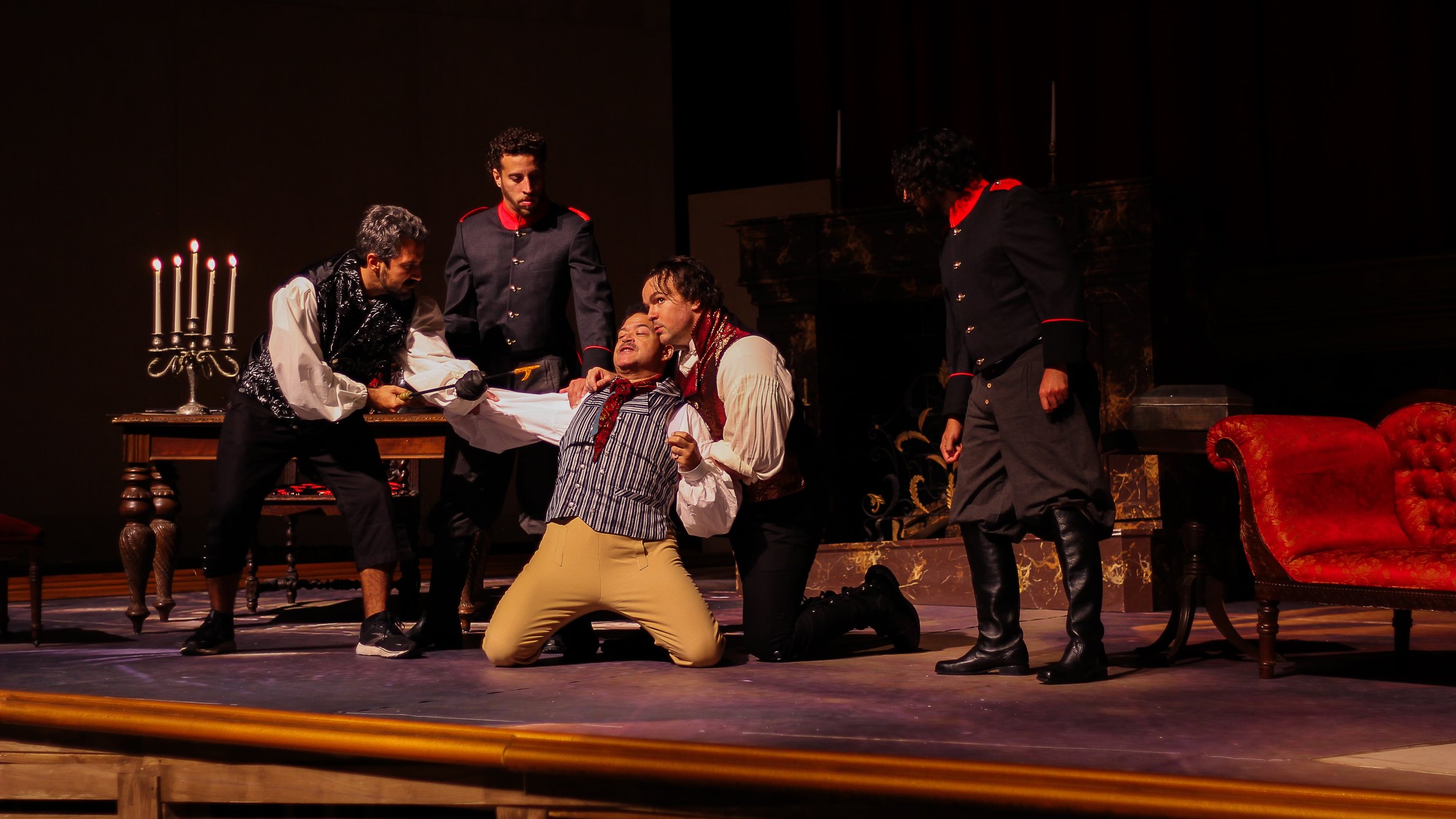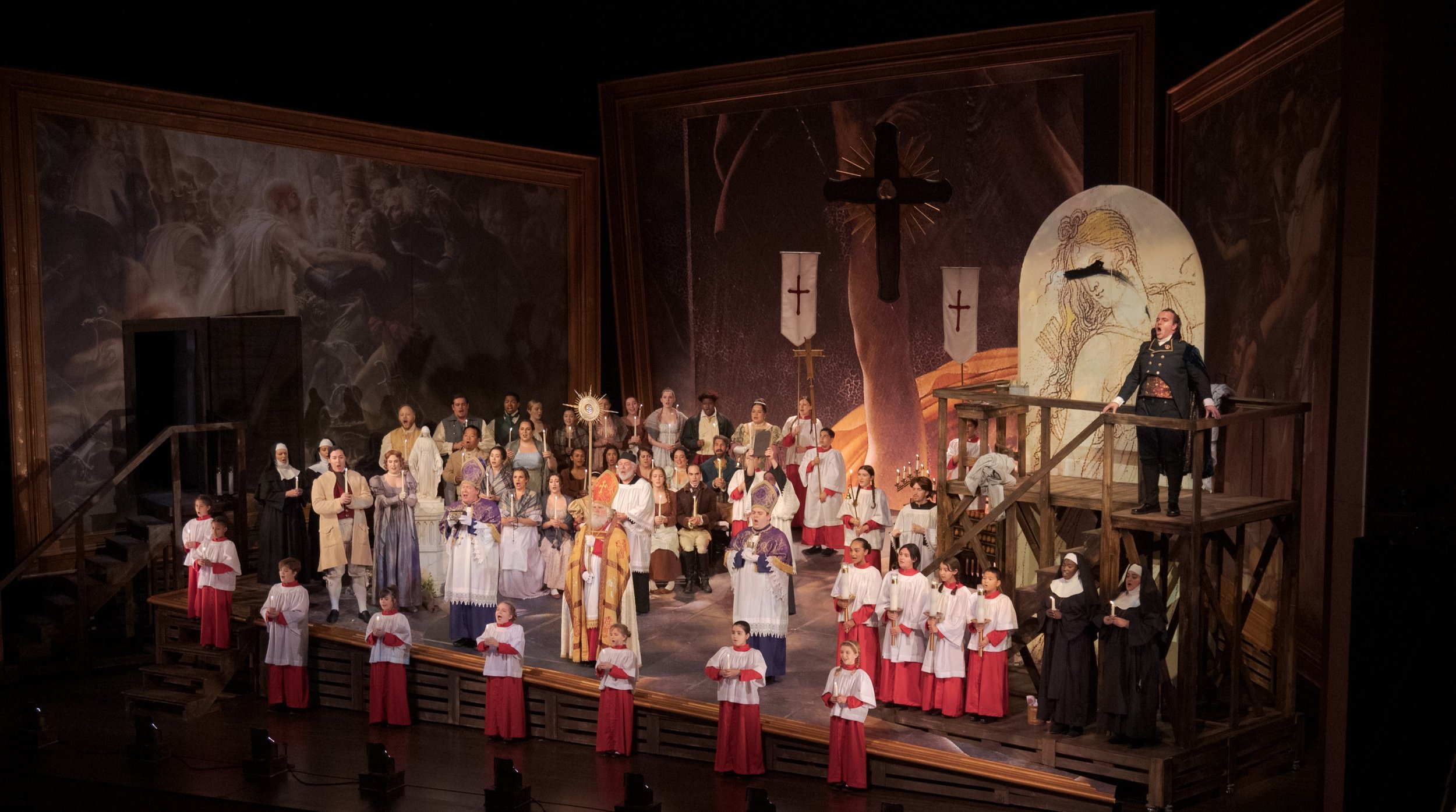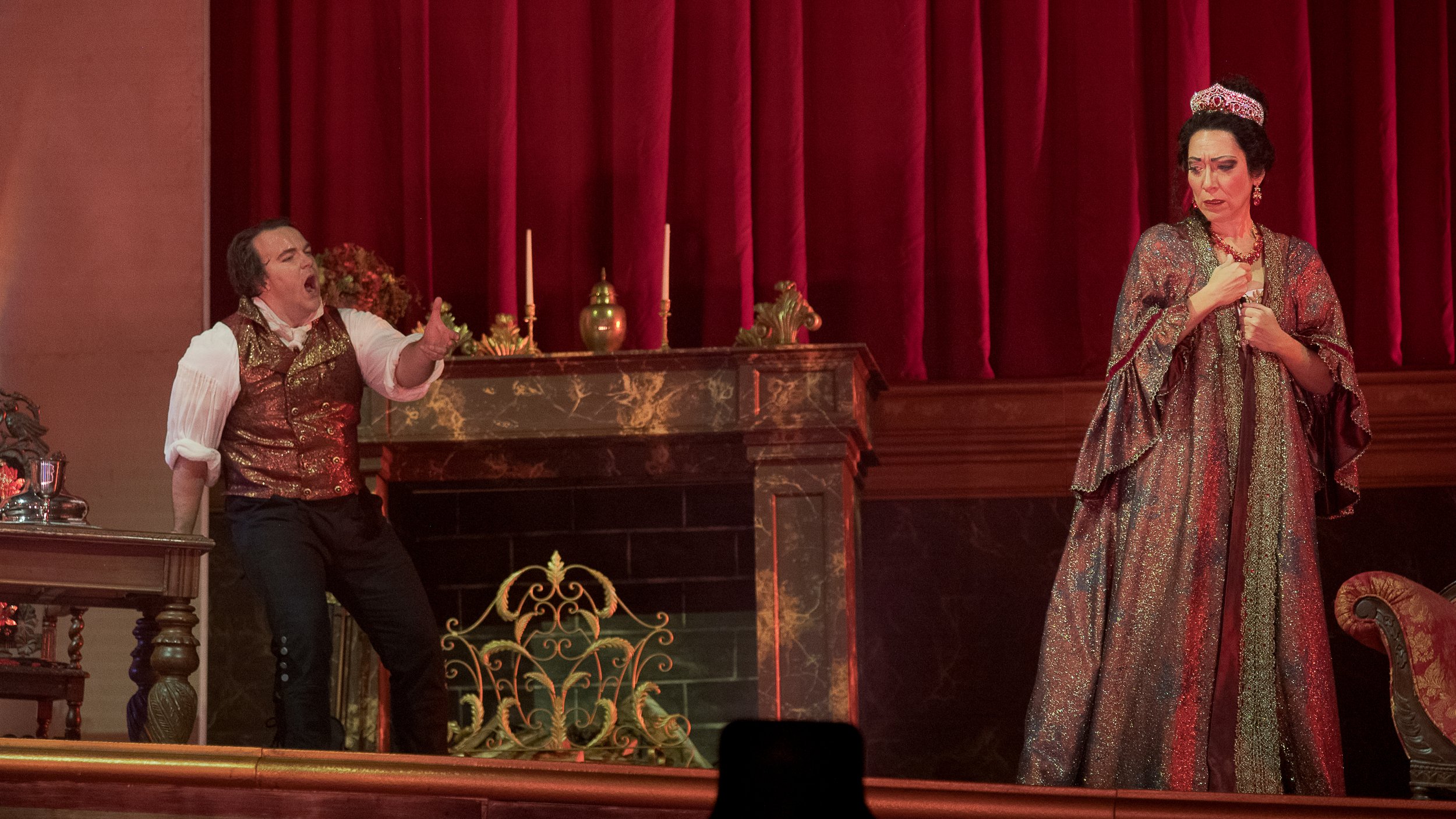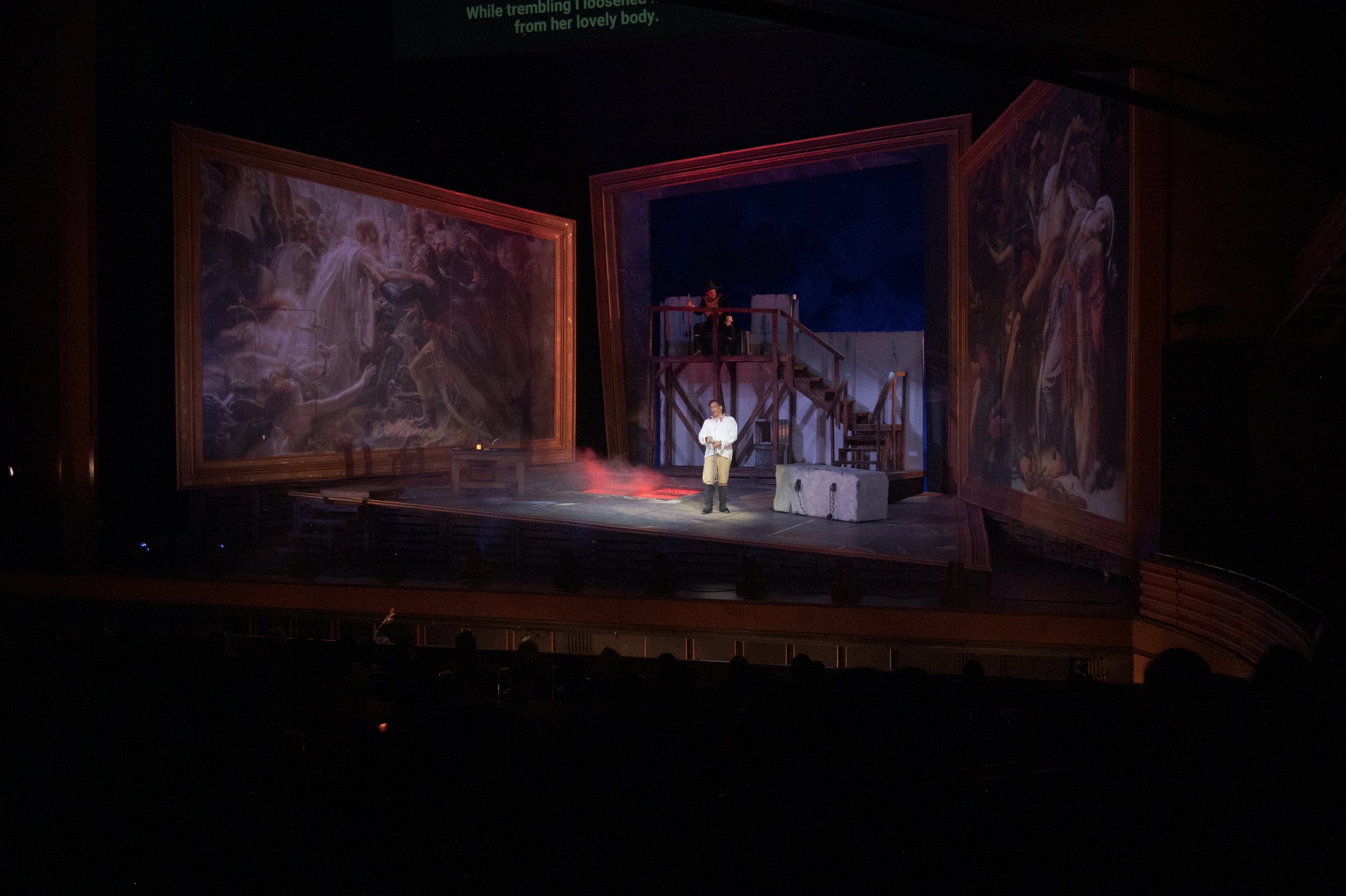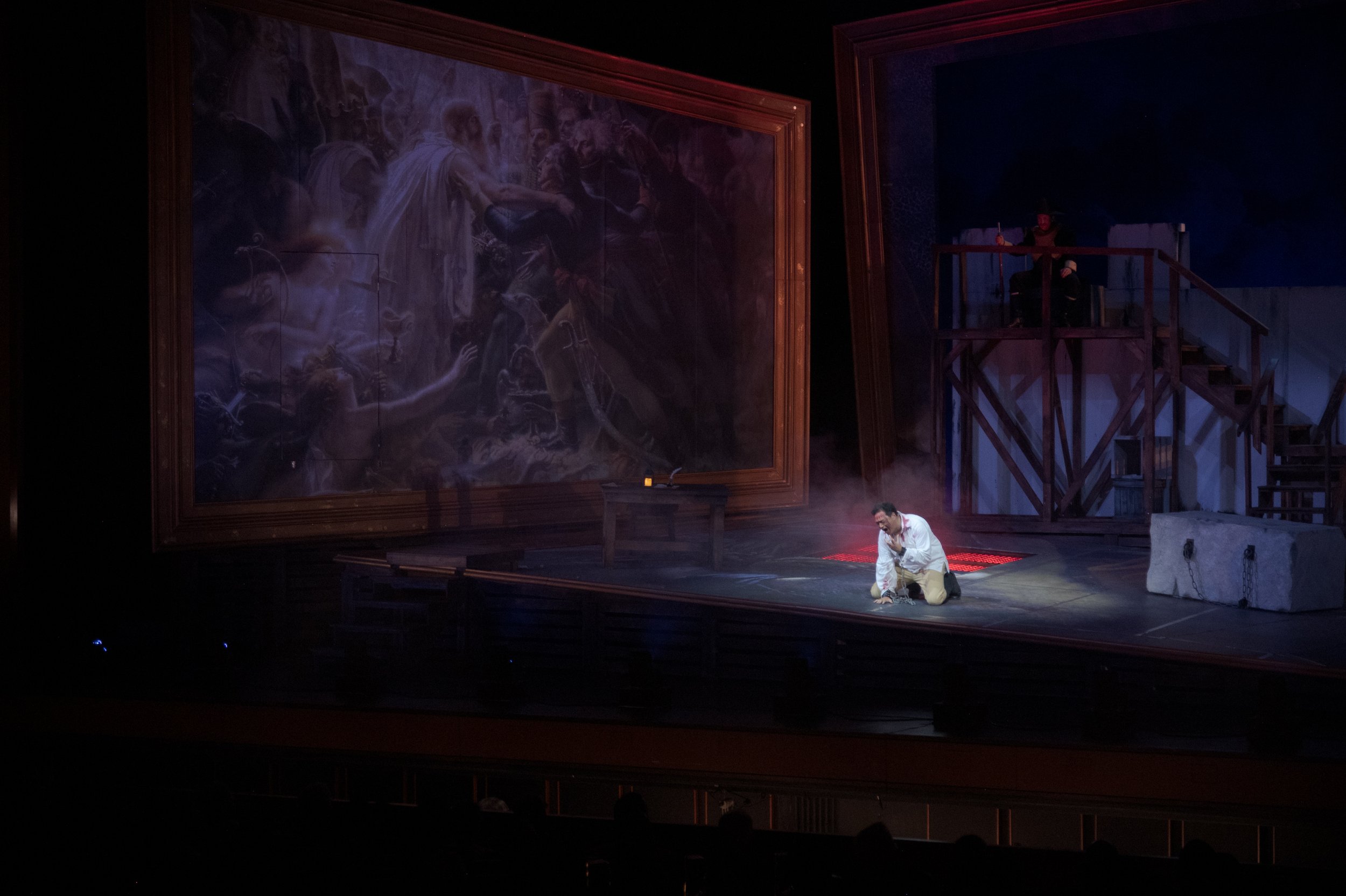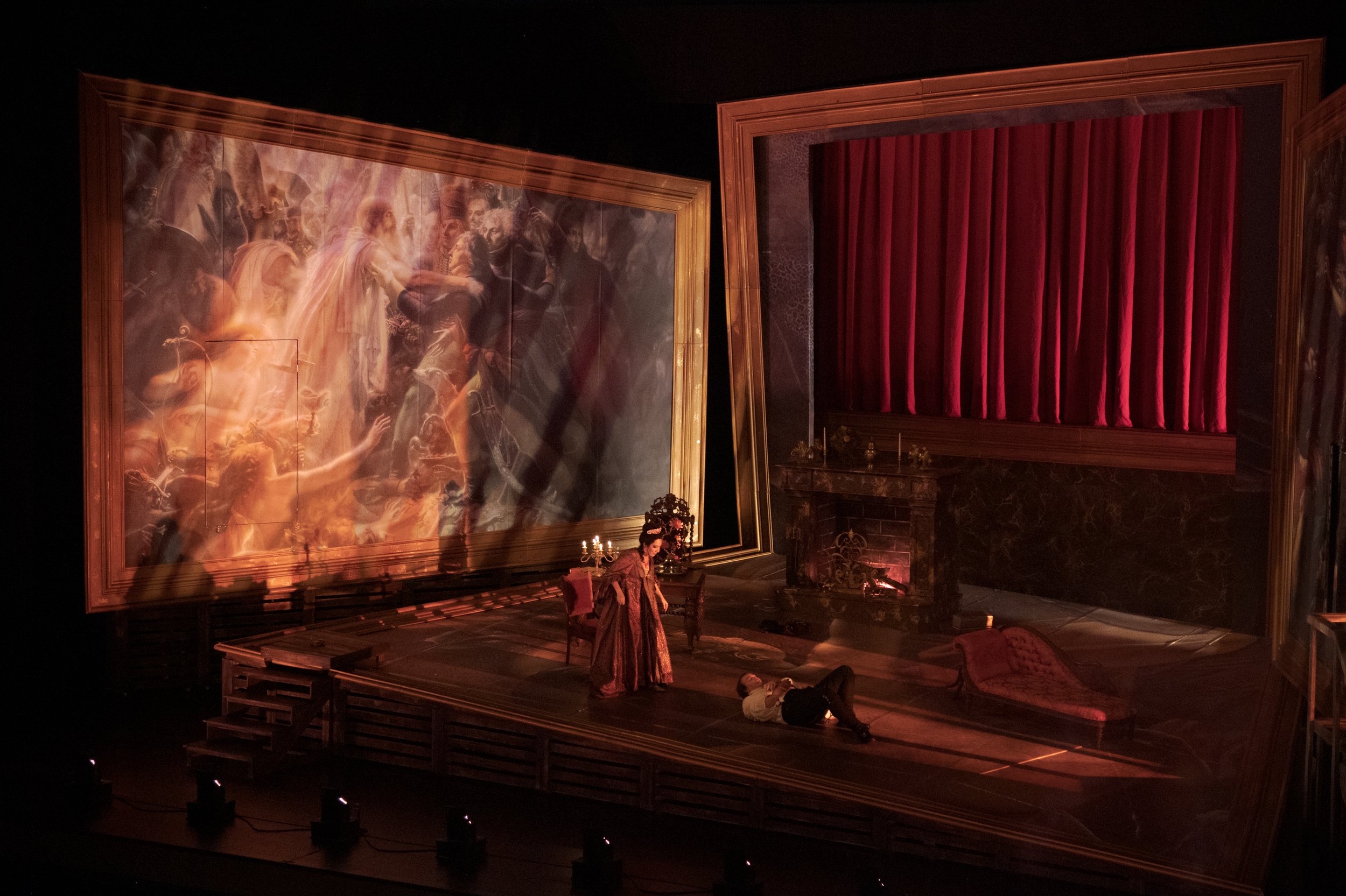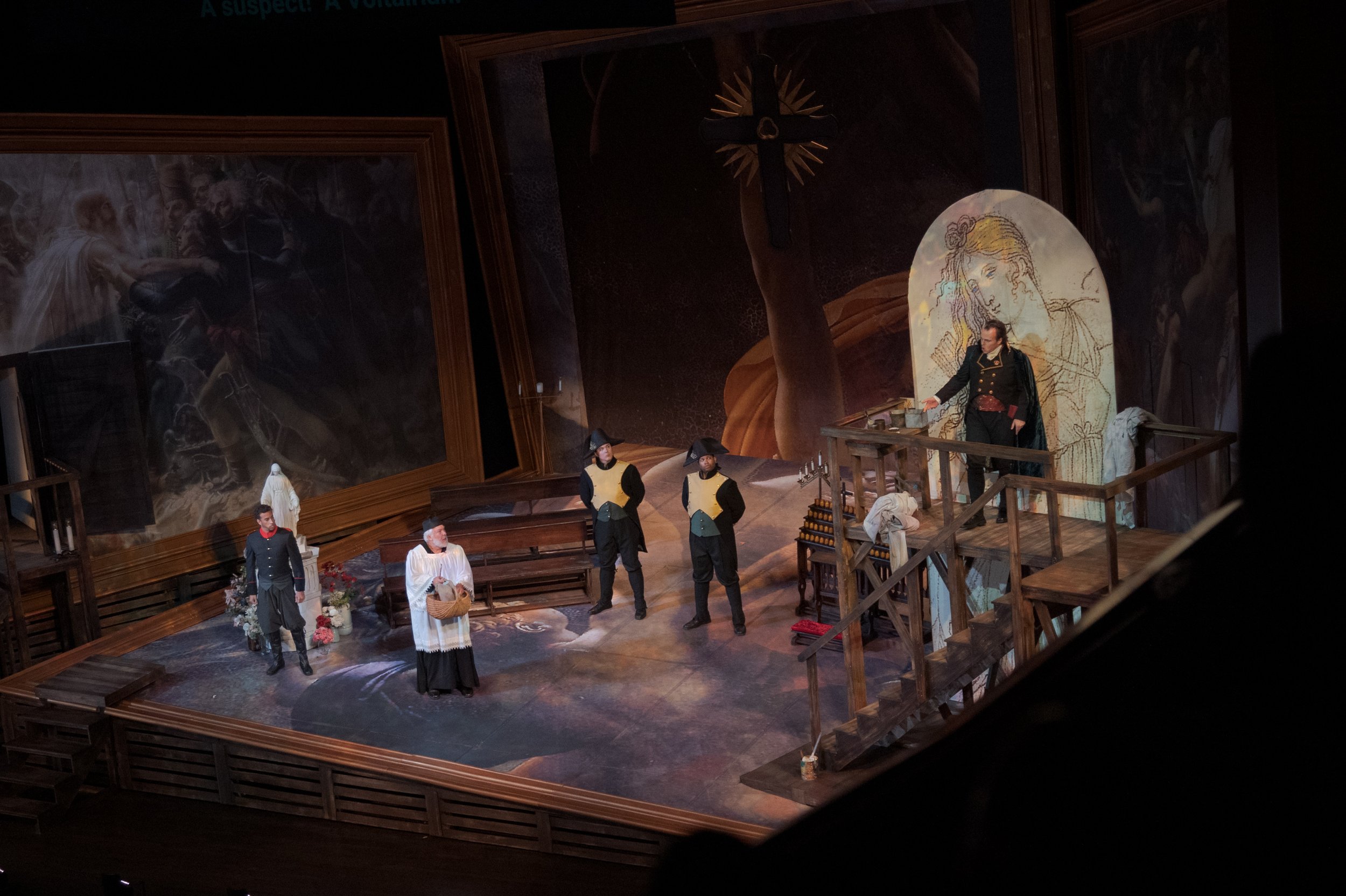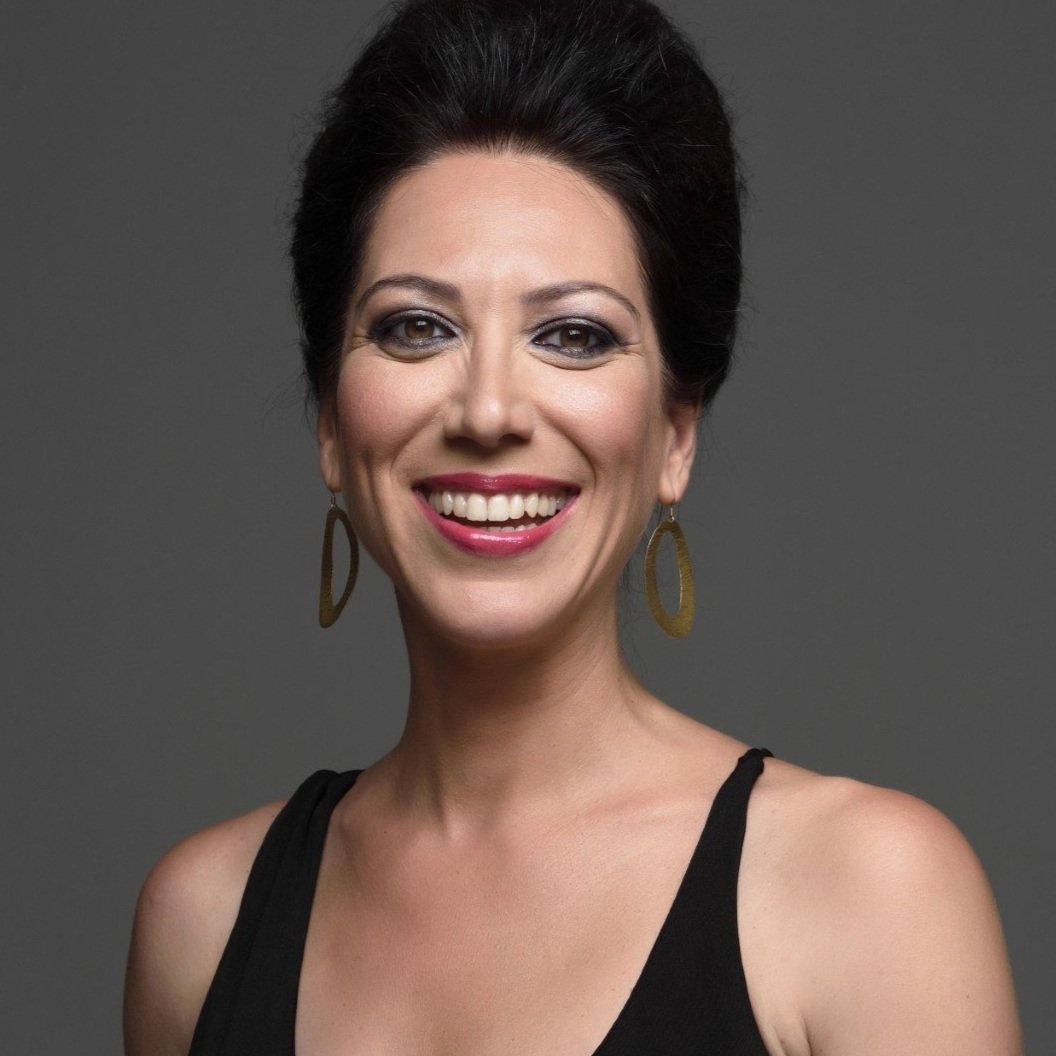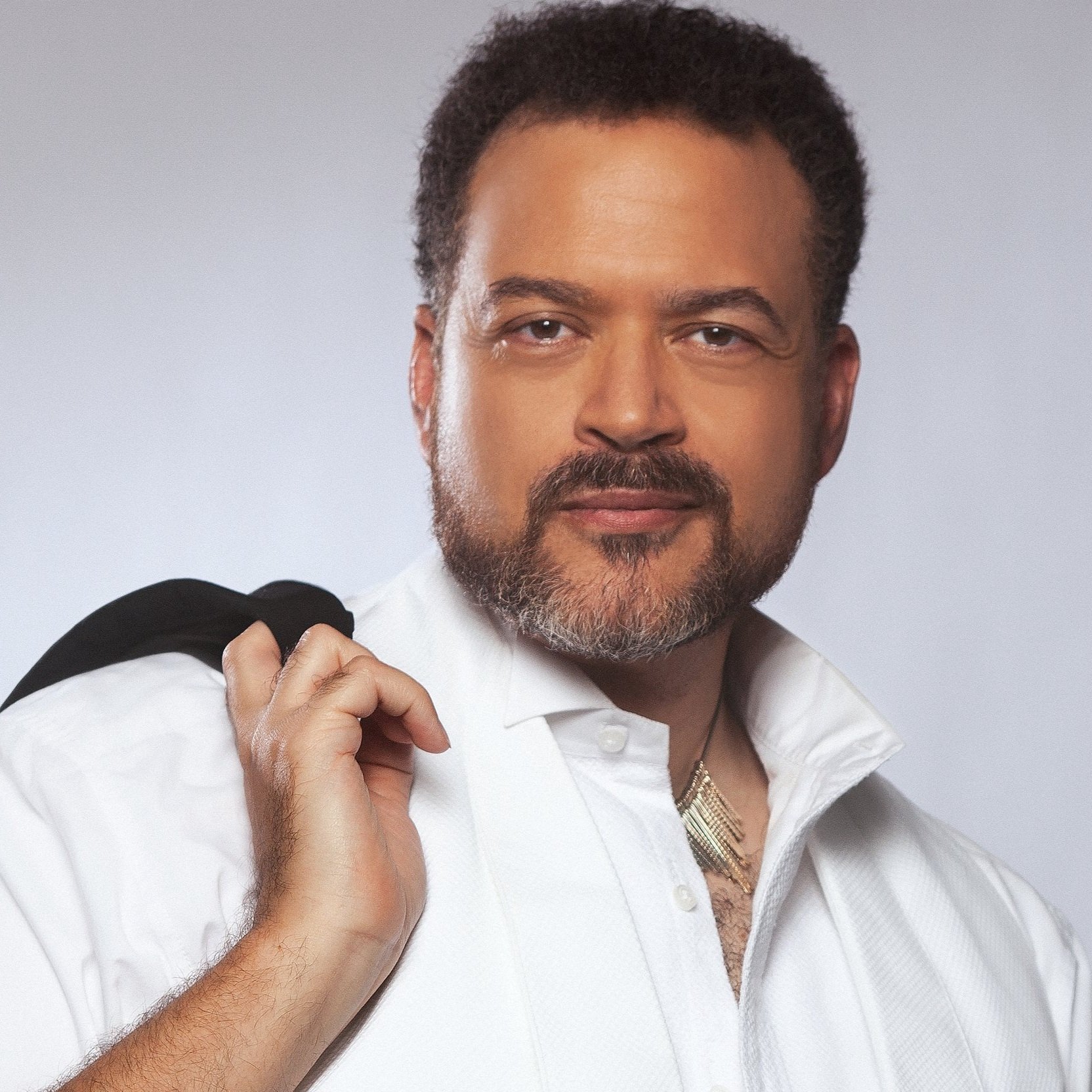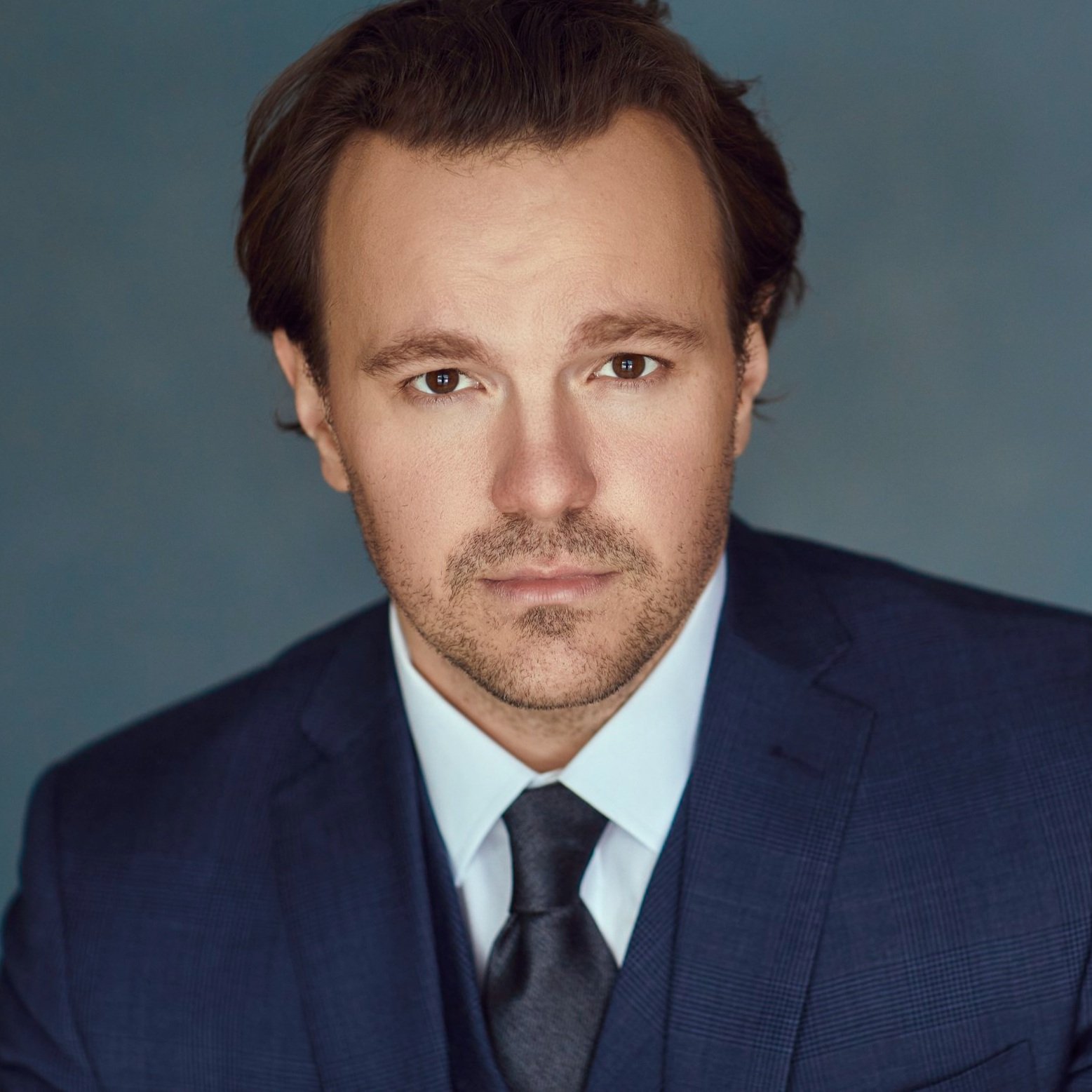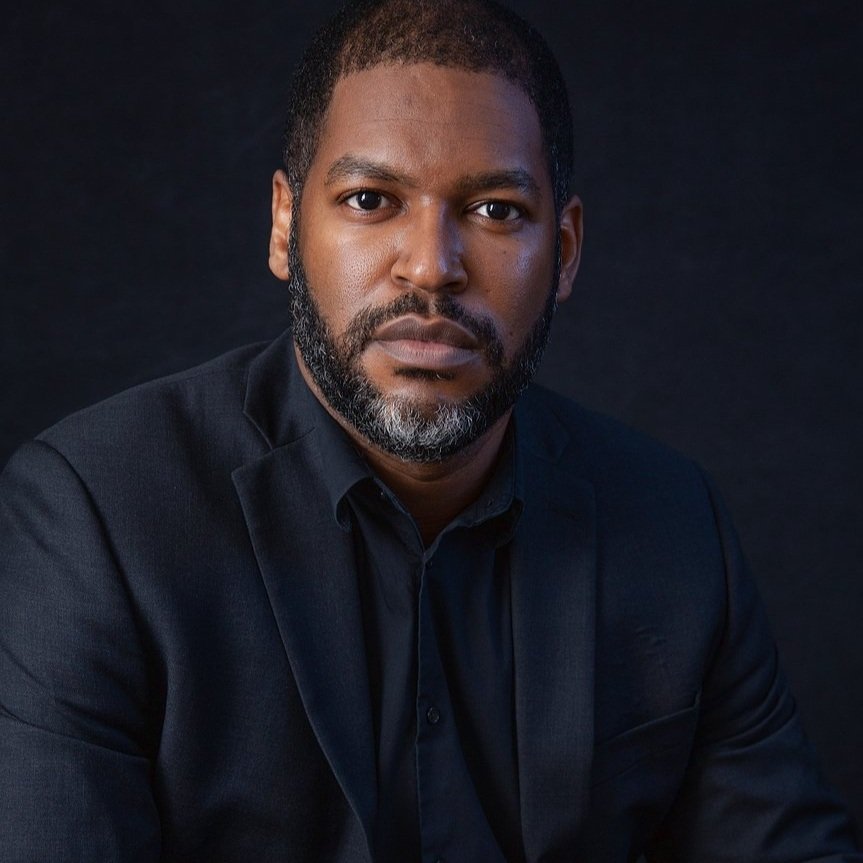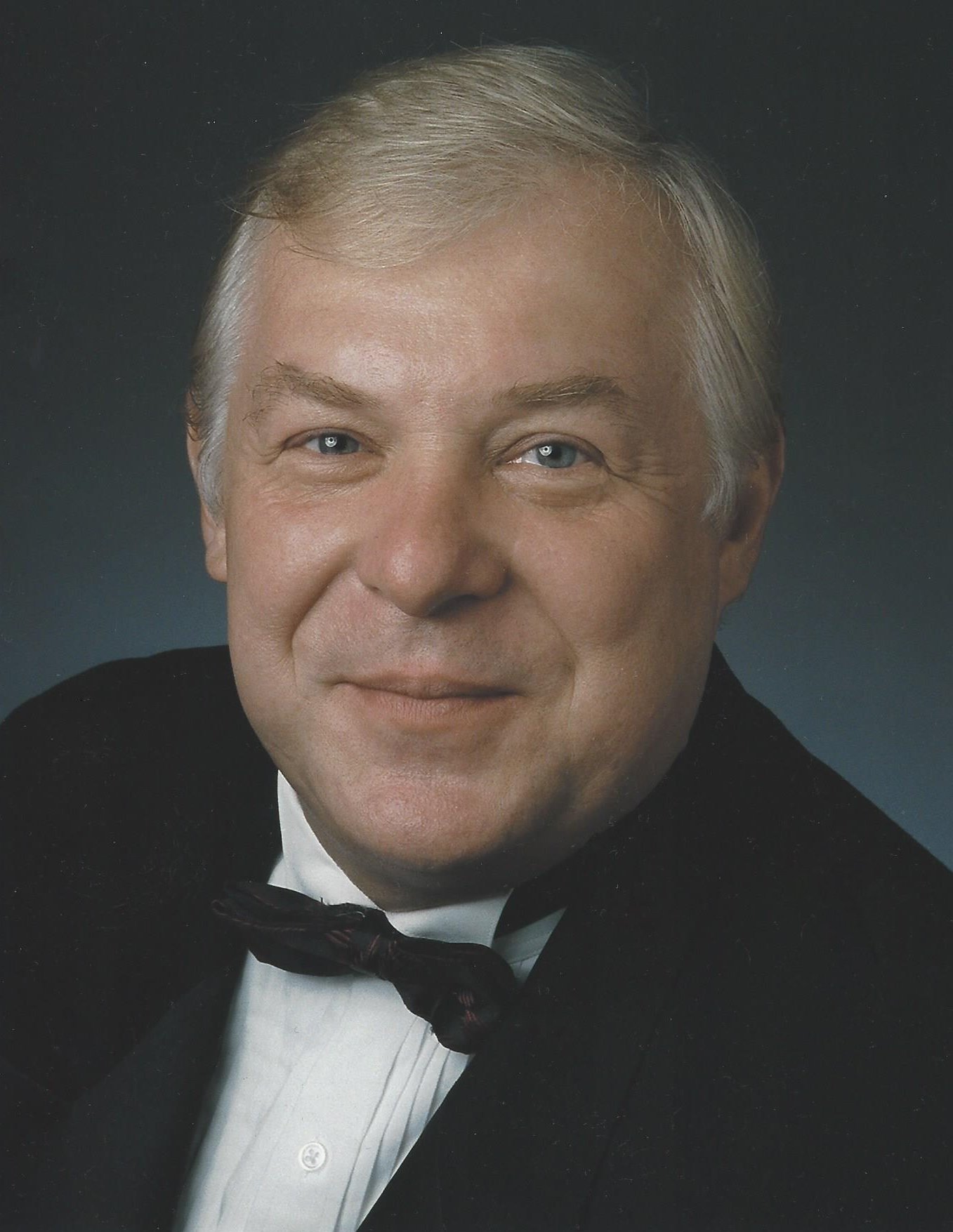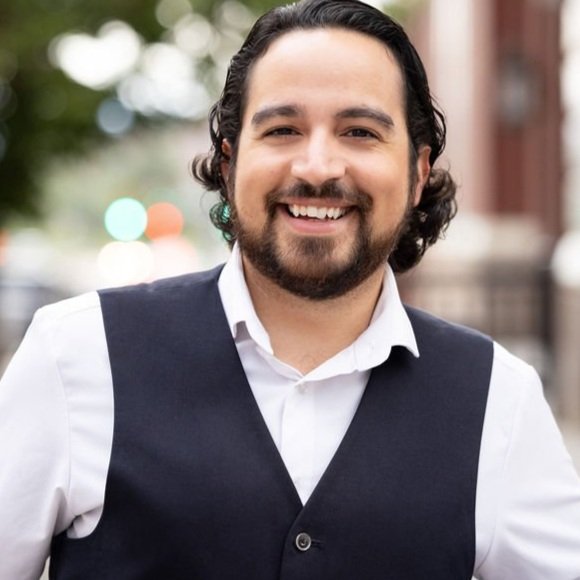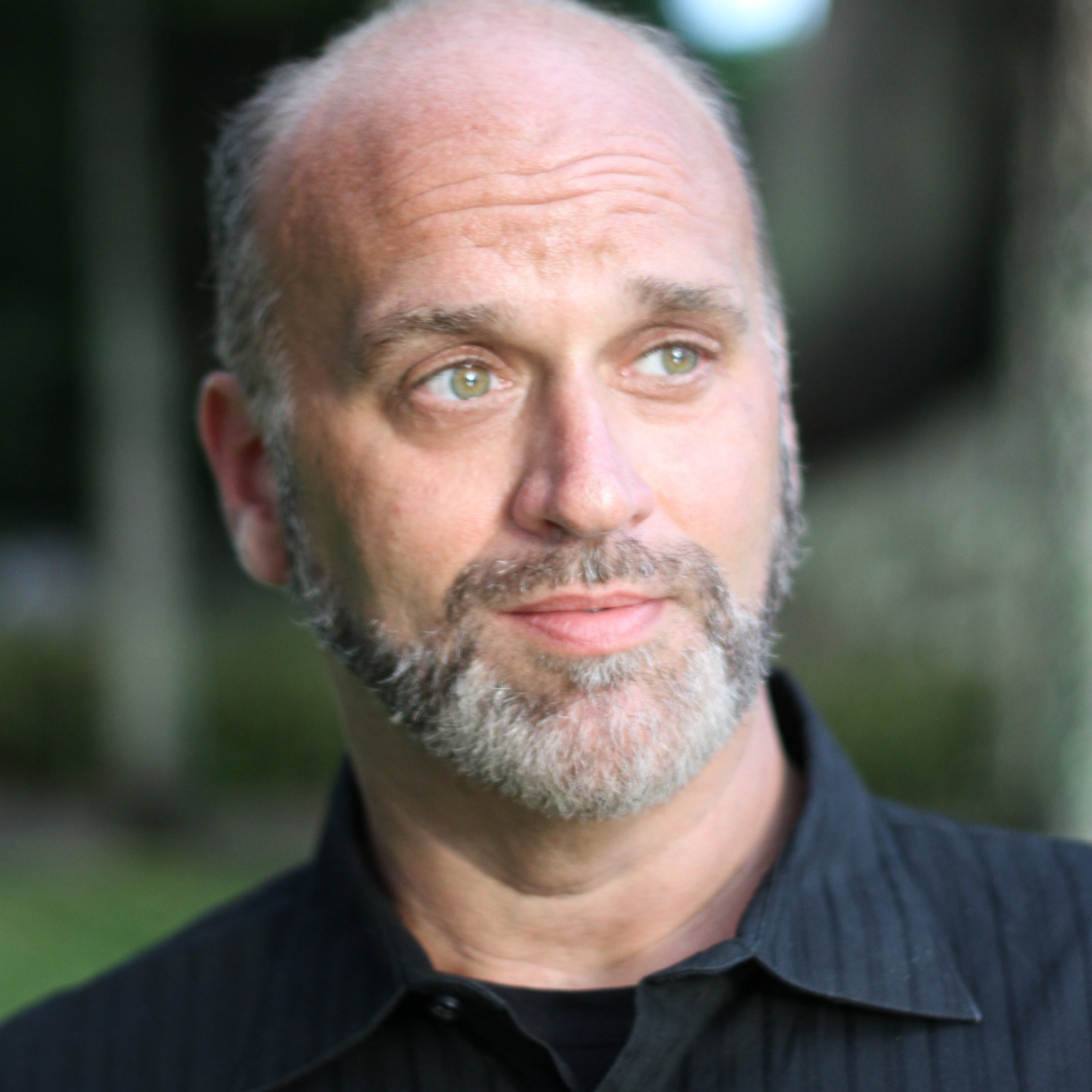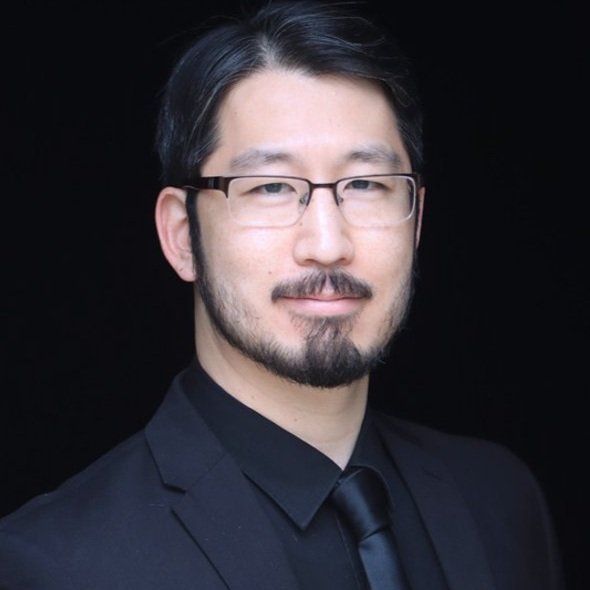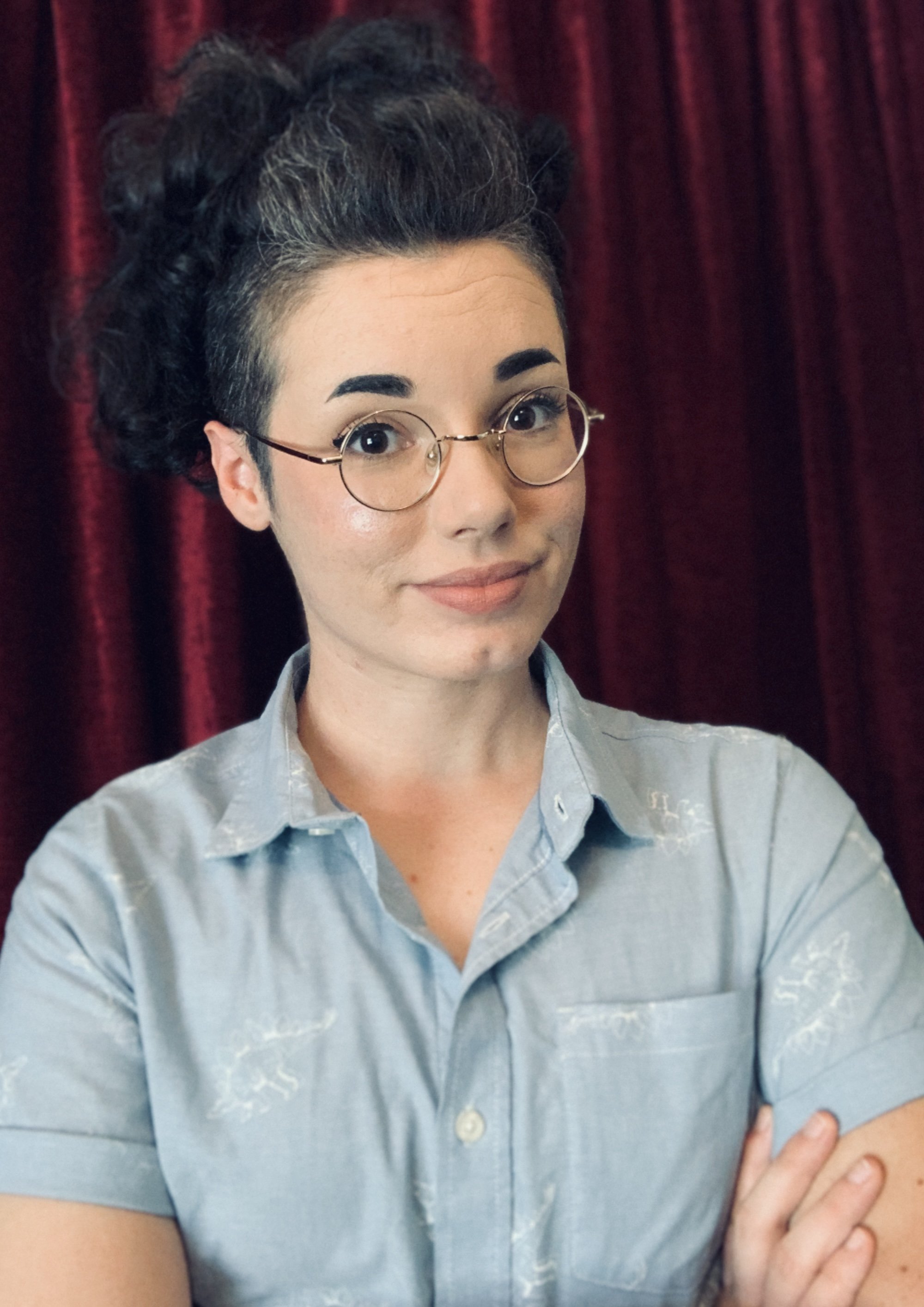TOSCA
OPERA ON THE MAINSTAGE
music by Giacomo Puccini
libretto by Luigi Illica and Giuseppe Giacosa
STEINMETZ HALL
at Dr. Phillips Center for the Performing Arts
445 S Magnolia Avenue | Orlando, FL 32801
Sung in Italian with English supertitles.
Estimated run time of two hours and twenty minutes including one intermission.
This production was graciously underwritten by Audrey & John Ruggieri.
Review from a first-time opera goer
My daughter and I attended at "Tosca" … not by a deep passion for operatic performances, but rather by a school assignment that required us to explore an art form that felt distant and unfamiliar… We entered Steinmetz hall with a mix of excitement and skepticism—our first opera experience. The evening unfolded with a really eye-opening performance of "Tosca," an opera that takes you into a world of passion, drama, and captivating music. Right away, any apprehensions I had that were relative to a language barrier were quelled, as I was introduced to the concept of supertitles. This is an English translation that is projected above the stage, allowing the audience to not only feel the story, but also understand it. “Tosca” transported us to 19th-century Rome and told a story of a jealous girlfriend and a painter with a wandering eye. I quickly realized that even though this story is over 400 years old, it would be easily relatable to modern social circumstances.
The experience brought a sort of enlightenment into the importance of “soundtracks” in visual arts, dating even further back than this play. In today’s movies and shows, soundtracks are apparent but much more subtle, or, “background noise” than the soundtracks of the opera. The instrumentation used in “Tosca” was robust, and central to the narration of the story. The elongated sung notes and drastically shifting variations in the tone of the orchestra, literally shifted your mood the inflictions and deflections in their voices. The Dr. Phillips Center, with its impeccable acoustics and opulent surroundings, elevated the experience, turning it into a sensory feast. The glowing stage lights and comfortable velvet seating contributed to an ambiance that made the evening feel more like a cultural indulgence than a class assignment.
As the opera unfolded, I found myself unexpectedly captivated by the intricate storytelling and the raw emotion conveyed through the powerful arias. The initial apprehension gave way to a newfound appreciation for this vintage art form. With the knowledge that opera houses follow an age-old rough schematic principle, it wasn’t very hard to feel like this experience itself was timeless. There was a moment of realization that we were not merely attending a performance; we were connecting with an enduring expression of human emotion and creativity. We had further woven ourselves into the fabric of humanity. The shared experience with my daughter created a moment that transcended the mundane, and I understood the significance of being part of an audience that has relished this exact moment, with their own loved ones, for centuries.
Reflecting on this outing, I recognized the value of stepping out of your comfort zone to explore diverse forms of art and entertainment. The opera, once an intimidating prospect, became a source of inspiration and cultural enrichment. It was a lesson in embracing the unfamiliar and finding unexpected joy in the process.
Attending "Tosca" proved to be a transformative experience. The grandeur of the venue, the emotive power of the opera, and the connection to humanity through this antique form of entertainment left a lasting impression. As we exited the building, my daughter and I shared a mutual sentiment – Frida was probably going to be really good, and we couldn’t wait to see it. The opera, once an unknown territory, had refreshed our bond and become a gateway to a world of artistic exploration we could embark on together.
Bravo.
CAST
PRODUCTION TEAM
Opera Orlando presents Puccini’s tragically grand Tosca to kick off its 2023-24 All for Art MainStage series. As war and rebellion ravage the city of Rome, the celebrated and passionate opera diva Floria Tosca finds herself caught in a web of religious and political intrigue, betrayal, and jealousy as she tries to save her lover the painter and firebrand Mario Cavadorossi, while being coveted by the villainous and corrupt Baron Scarpia, who holds all the power. It is an utterly untenable situation that proves dire for all involved, but Tosca isn’t one to back down from a fight.
This taut melodrama unfolds on stage at Steinmetz Hall in a brand new and sumptuous production led by stage director Josh Shaw, making his return to Opera Orlando, and conductor Eiki Isomura who is making his Company debut, with the Orlando Philharmonic Orchestra in the pit. They are joined by an international cast that includes Greek-soprano Eleni Calenos as the luminous and fiery Tosca with acclaimed tenor Nathan Granner as the fearless and dashing Cavaradossi. They are both making their Company debuts, while baritone Daniel Scofield, last seen as Sheriff Jack Rance in Opera Orlando’s site-specific production of The Girl of the Golden West, returns to Orlando as the treacherous and forceful Scarpia. The cast also includes 2023-24 studio artists, members of the Opera Orlando chorus, and the Opera Orlando Youth Company.
Rome | June 1800
ACT I - Church of Sant’Andrea della Valle
Rome, June 1800. Cesare Angelotti, an escaped political prisoner, rushes into the church. After finding the key his sister, the Marchesa Attavanti, has hidden for him, he hides in his family’s private chapel. Soon, the painter Mario Cavaradossi arrives to work on his portrait of Mary Magdalene. The painting has been inspired by Angelotti’s sister, whom Cavaradossi had seen praying in the church. Angelotti, a member of the former Bonapartiste government, emerges from his hiding place. Cavaradossi recognizes him and promises help, then hurries him back into the chapel as the singer, Floria Tosca, who is also his lover, calls from outside. When he lets her into the church, she jealousy asks Cavaradossi to whom he has been talking to and reminds him of their rendezvous that evening. Suddenly recognizing the Marchesa Attavanti in the painting, she accuses him of being unfaithful, but he assures her of his love. When Tosca has left, Angelotti again comes out of hiding. A cannon signals that the police have discovered the escape, and he and Cavaradossi flee to the painter’s home. The sacristan enters with choirboys who are preparing to sing "Te Deum," celebrating the recent victory against Napoleon at the Battle of Marengo. Their singing is interrupted when the chief of the secret police, Baron Scarpia, arrives and searches for Angelotti. When Tosca comes back looking for Cavaradossi, Scarpia shows her a fan with the Attavanti crest that he has just found. Seemingly confirming her suspicions about her lover’s infidelity, Tosca is devastated. She vows vengeance and leaves as the church fills with worshippers. Scarpia sends his men to follow her to Cavaradossi, whom he thinks is hiding Angelotti. While the congregation intones the “Te Deum,” Scarpia declares that he will bend Tosca to his will.
– INTERMISSION –
ACT II - Scarpia’s chambers in the Palazzo Farnese
Later that evening Scarpia anticipates having Tosca in his power. The spy Spoletta arrives with news that he was unable to find Angelotti. Instead, he brings in Cavaradossi. Scarpia interrogates the defiant painter while Tosca sings at a royal gala in the palace courtyard. Scarpia sends for her and she appears just as Cavaradossi is being taken away to be tortured. Frightened by Scarpia’s questions and Cavaradossi’s screams, Tosca reveals Angelotti’s hiding place. Henchmen bring in Cavaradossi, who is badly hurt and hardly conscious. When he realizes what has happened, he angrily confronts Tosca, just as the officer Sciarrone rushes in to announce that Napoleon actually has won the battle—a defeat for Scarpia’s side. Cavaradossi shouts out his defiance of tyranny, and Scarpia orders him to be executed. Once alone with Tosca, Scarpia calmly suggests that he would let Cavaradossi go free if she’d give herself to him. Fighting off his advances, she declares that she has dedicated her life to art and love and calls on God for help. Scarpia becomes more insistent, but Spoletta bursts in, announcing that once faced with capture, Angelotti has killed himself. Tosca, now forced to give in or lose her lover, agrees to Scarpia’s proposition. Scarpia orders Spoletta to prepare for a mock execution of Cavaradossi, after which he is to be freed. Tosca demands that Scarpia write her a passage of safe-conduct. After he has done so, he attempts to make love to Tosca, but she grabs a knife from the table and stabs him. She takes the pass and flees.
ACT III - ramparts of Castel Sant’Angelo
At dawn, Cavaradossi awaits his execution. He bribes the jailer to deliver a farewell letter to Tosca, and then, overcome with emotion, gives in to his despair. Tosca appears and explains what has happened. The two imagine their future in freedom. As the execution squad arrives, Tosca implores Cavaradossi to fake his death convincingly, then watches from a distance. The soldiers fire and depart. When Cavaradossi doesn’t move, Tosca realizes that the execution was real, and Scarpia has betrayed her. Scarpia’s men rush in to arrest her, but she cries out that she will meet Scarpia before God and leaps from the battlement.



